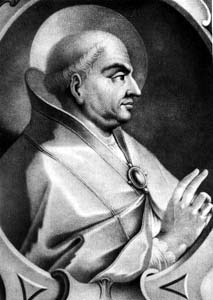Following on my previous analysis of Star Trek TOS as a whole, here, taken pretty much at random (based, that is, on my own personal likes, dislikes, and fascinations) are discussions of three individual episodes of Star Trek TOS.
This episode has a very special place in Star Trek history; it was the episode that convinced CBS that Star Trek could work as a network television show. The network had been naturally impressed by Star Trek's concept, which promised a relatively simple and potentially lucrative way to do science fiction on television; however, it was ultimately disappointed by the first pilot produced, the "Cage." Led by Jeffrey Hunter as Captain Christopher Pike, and featuring large-headed alien zoo-keepers with the power of illusion, the network felt that the show was, in a quote that has since become legend, "too cerebral." Really, they were basically right; the Cage, for all the bluster of its lead character, is a rather stiff hour of television, appreciably strange, but patently lacking in human interest. By the time Pike has angrily and defiantly, for the fourth time or so, declared to his captors that human beings will never stop resisting cages, even pleasant ones, and will always prefer difficult reality to pleasant illusion, we appreciate the point, but do not really feel much affection for the man making it. An entire twenty-six episode season of such breathless didacticism would be difficult to take; and CBS was right in saying so.
Where No Man Has Gone Before
This episode has a very special place in Star Trek history; it was the episode that convinced CBS that Star Trek could work as a network television show. The network had been naturally impressed by Star Trek's concept, which promised a relatively simple and potentially lucrative way to do science fiction on television; however, it was ultimately disappointed by the first pilot produced, the "Cage." Led by Jeffrey Hunter as Captain Christopher Pike, and featuring large-headed alien zoo-keepers with the power of illusion, the network felt that the show was, in a quote that has since become legend, "too cerebral." Really, they were basically right; the Cage, for all the bluster of its lead character, is a rather stiff hour of television, appreciably strange, but patently lacking in human interest. By the time Pike has angrily and defiantly, for the fourth time or so, declared to his captors that human beings will never stop resisting cages, even pleasant ones, and will always prefer difficult reality to pleasant illusion, we appreciate the point, but do not really feel much affection for the man making it. An entire twenty-six episode season of such breathless didacticism would be difficult to take; and CBS was right in saying so.
However, as it goes, the network was, in fact, so interested in the basic concept of Star Trek--Gene Roddenberry's "Wagon Train to the Stars," science-fiction-as-Western-and-military-drama brainwave-- that they took the unprecedented step of commissioning a second pilot for the proposed series. Left to his own devices again, Gene Roddenberry booted the entire cast--with the exception of a certain pointed-eared alien--but kept the sets and format basically the same. What he needed was not so much a better concept as better storytelling, by a better writer, with more human and sympathetic characters. He found his writer in Samuel A Peeples, an old hand at television (and Western) writing; he found his leading man in William Shatner, as I discussed in my last post. CBS was much more impressed by what they saw this time, and ordered a full season of Star Trek; and they were, frankly, right to be impressed. Even with all the rough edges typical of a pilot episode, Where No Man Has Gone Before is a truly excellent piece of television, with both an intelligent and worthy moral AND effective human drama.







